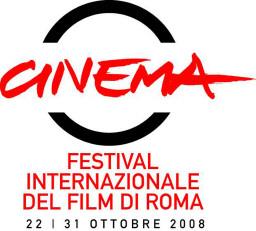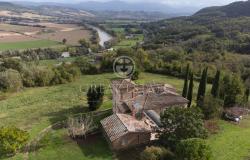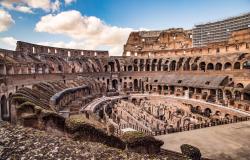A performance by Hollywood legend Al Pacino and a Brazilian street party will usher in the third edition of Rome's International Film Festival this Wednesday.
The festival, which runs until October 31, will boast dozens of Italian and international movies and documentaries, as well as five exhibitions, drawing leading figures from the world of cinema.
The event kicks off on Wednesday evening with an independent film directed by and starring Al Pacino, Chinese Coffee.
Completed in 2000, the film has long been popular on the US festival circuit but has never been picked up for general release and this will be its first Italian screening.
Pacino will be given a Marcus Aurelius award for career achievement and pick up another one on behalf of the New York Actors Studio.
A third Marcus Aurelius award will be handed to 1950-60s sex symbol Gina Lollobrigida.
Wednesday will also see Piazza Navona, in the heart of Rome, hosting a Brazilian street party in front of the Brazilian embassy there.
Over 40 artists, musicians and dancers will stage a show open to the general public inspired by Brazil's music and legendary carnival atmosphere.
On Thursday, an Italian movie will inaugurate the competitive section of the festival.
L'Uomo che Ama (The Man Who Loves) is the second feature film by award-winning 37-year-old director Maria Sole Tognazzi, daughter of the late Italian screen great Ugo Tognazzi.
Starring Monica Bellucci and Pierfrancesco Favino, it tells the story of a 40-year-old pharmacist trying to juggle work, women and family commitments.
One of the other much-anticipated Italian films is Il Passato E' Una Terra Straniera (The Past Is A Foreign Country), Daniele Vicari's adaptation of the novel by Gianrico Carofiglio, a southern Italian writer and anti-Mafia judge.
The closing film, showing unusually after the final awards ceremony, will be L'ultimo Pulcinella, which recounts the traumatic relationship between a Neapolitan and his father, a street artist who has trouble making ends meet.
Top Italian theatre director and writer Maurizio Scaparro adapted his own stage piece from an idea by Neorealist great Roberto Rossellini.
These three are among six Italian features competing in this year's edition, the result of a deliberate shift in policy aimed at promoting home-grown cinema.
The last two editions of the festival, the pet project of former mayor Walter Veltroni, have been far glitzier, international events, drawing stars such as Nicole Kidman and Leonardo Di Caprio.
But shortly after taking office in April, the capital's new mayor Gianni Alemanno unveiled a new direction for the festival.
''I don't want to cancel the cultural initiatives of the past but I think we need to promote Italian films rather than Hollywood stars,'' he explained.
The right-wing mayor also cut funding for the festival, which is this year making do with 15 million euros, two million less than last year.
While the changes mean fewer Hollywood stars will grace the red carpet than in previous years, the pay-off is a focus on high-quality European films, which are often overlooked in favour of big budget American productions.
In addition to the six Italian features, the competition section will see five films from France, two each from Germany and Poland, and offerings from the UK, Ukraine, Portugal, Belgium and Russia.
South Korea has two entrants and the US just one, Pride And Glory, released in Europe early next month.
A much talked-about United Nations-sponsored film by eight different directors, including Jane Campion, Mira Nair and Wim Wenders, will premiere in the festival's non-competitive section.
Entitled simply Eight, the film's segments are based on eight targets agreed by the UN in September 2000 to improve the lives of people round the world.
Gael Garcia Bernal, Gus Van Sant, Jan Kounen, Abderrahmane Sissako and Gaspar Noe are the directors of the other five segments.
But in addition to heavyweight productions that are the standard fare of film festivals, organizers have promised a number of more ''accessible'' films.
Unusually for an international festival, four comedies will be screened, including a UK production, Easy Virtue, based on a whirlwind romance in the 1920s.
As part of the same drive to create a less highbrow, more popular event, the winning film will be selected by festival-goers instead of a jury.
Audiences will be given scorecards for each movie, with scanners at the exit of the auditorium to register their mark of between one and five.
Detailed information about the festival is available at www.romacinemafest.it.










